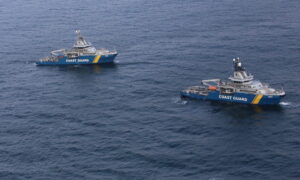Marseille-based CMA CGM, the world’s third largest shipping container company, will pay $165,000 in penalties for claims of violations by four of the company’s ships involving ballast water discharge, recordkeeping, inspection, monitoring, and reporting.
The U.S. Environmental Protection Agency (EPA) has settled with CMA CGM over claims of violations of EPA’s Vessel General Permit issued under the Clean Water Act.
The EPA said the settlement includes penalties for the following vessels of $48,277 for the CMA CGM A. Lincoln, $48,233 for the CMA CGM T. Jefferson, $52,197 for the CMA CGM Fidelio, and $16,293 for the APL Columbus.
The EPA claimed that the shipping giant failed to treat ballast water prior to discharging it in a manner consistent with the compliance deadline at U.S. ports, including the Port of Los Angeles in California.
CMA CGM also did not record the findings of annual comprehensive inspections and did not conduct an annual calibration of a ballast water treatment system.
According to the EPA, the company failed to monitor and sample discharges from ballast water treatment systems, and report complete and accurate information in annual reports.
“The Vessel General Permit is a key element of the Clean Water Act. When companies and their ships don’t comply with this permit, the quality of our nation’s already-challenged waters can be seriously impacted,” said EPA Pacific Southwest Regional Administrator Martha Guzman.
“It’s incumbent upon vessel owners and operators to properly manage what they discharge into our oceans, and to meet their monitoring and reporting requirements.”
Vessel self-inspections are required as a means of identifying potential sources of spills, broken pollution prevention equipment, or other issues that might lead to permit violations.
In addition, it is important that such discharges by ships be monitored to ensure that aquatic ecosystems are protected from discharges that contain pollutants.
EPA’s settlement with CMA CGM resolves claims of Clean Water Act violations and are subject to a 30-day public comment period prior to final approval.



